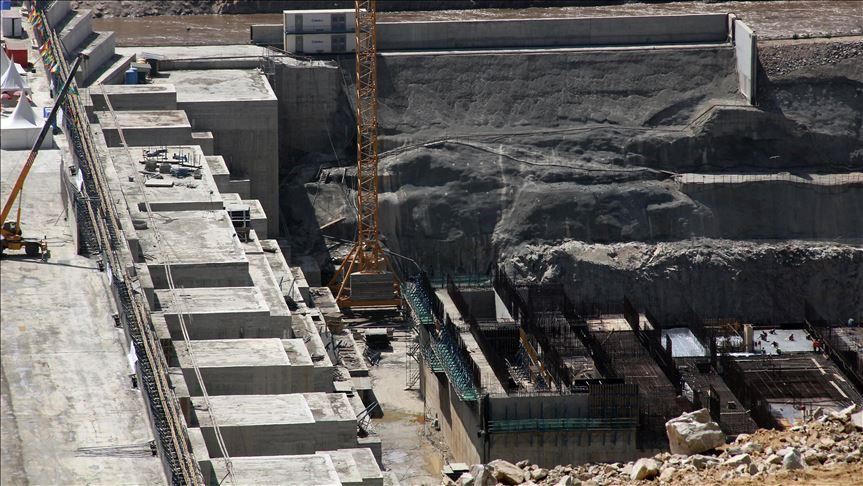
Addis Ababa, Ethiopia
Ethiopia has said U.S. Treasury Secretary Steven Mnuchin’s advise to Ethiopia not to fill the dam before an agreement was" ill-advised".
Foreign Minister Gedu Andargachew made the remark in a press conference with Water Minister Seleshi Bekele at the Prime Minister’s office on Tuesday amid escalating tension between Ethiopia and Egypt since last Friday.
On Feb. 28, a week after the latest round of talks on Ethiopia’s $5-billion dam on the Nile, Mnuchin issued a statement that the country should not start filling its dam as planned in July before all three countries -- Sudan, Egypt and Ethiopia -- sign the agreement.
"Consistent with the principles set out in the DOP [Declaration of Principles], and in particular the principles of not causing significant harm to downstream countries, final testing and filling should not take place without an agreement," the statement said.
A document by the U.S. during recent meetings in Washington, D.C. -- which Ethiopia skipped -- was initialed by Egypt, while Ethiopia and Sudan refrained from doing so.
“It is a big, big country in its diplomatic and other influence and we do not expect from them such an undiplomatic statement,” Gedu said, adding that it was "unacceptable".
“We hope and expect that the U.S. would revise the statement,” he stressed.
Mnuchin’s statement was followed by a verbal tit-for-tat between Egypt and Ethiopia, with the former threatening to explore all necessary means to “safeguard the interests of Egypt.”
Gedu said the threat by Egypt to employ “all means necessary to safeguard Egyptian interests on the Nile” was not useful to all parties involved, including Egypt itself.
Meanwhile, Bekele said Ethiopia has not gone out of the talks.
“Ethiopia has called for a prolongation of time in the talks in view of unresolved issues in the talks. There are still numerous points of difference. And Ethiopia is developing a document based on the outcomes of negotiations so far,” Seleshi said.
“Ethiopia has never said it would go out of the U.S.-sponsored talks, and dialogue would continue,” he said, adding there were still sticking points in terms of the filling and operations of the dam with regards to extended drought periods.
“What Ethiopia opposes is the shifting roles of the U.S. as facilitator or mediator. We only agreed to the U.S. and World Bank to be observers, and we want them only stick to that,” he said.
“Ethiopia does not want the process of negotiation to be rushed in spite of the unresolved outstanding issues that are still on the table,” Seleshi said.
According to Bekele, the U.S. treasury puts out a piecemeal document for the three countries -- Sudan, Ethiopia and Egypt -- to sign, and that would not be acceptable.
“We want a comprehensive document that addresses all issues,” he said.
Egypt fears the Grand Ethiopian Renaissance Dam would reduce its “traditional share” of the Nile water significantly, while Ethiopia maintains that it needs the dam for its development.
Bekele noted Ethiopia would stick to its plan of starting to fill the dam as of July and testing the turbines sometime next year, and the first filling, is not too much as the “first testing of turbines only requires 4.9 billion cubic meters.”
Anadolu Agency website contains only a portion of the news stories offered to subscribers in the AA News Broadcasting System (HAS), and in summarized form. Please contact us for subscription options.







